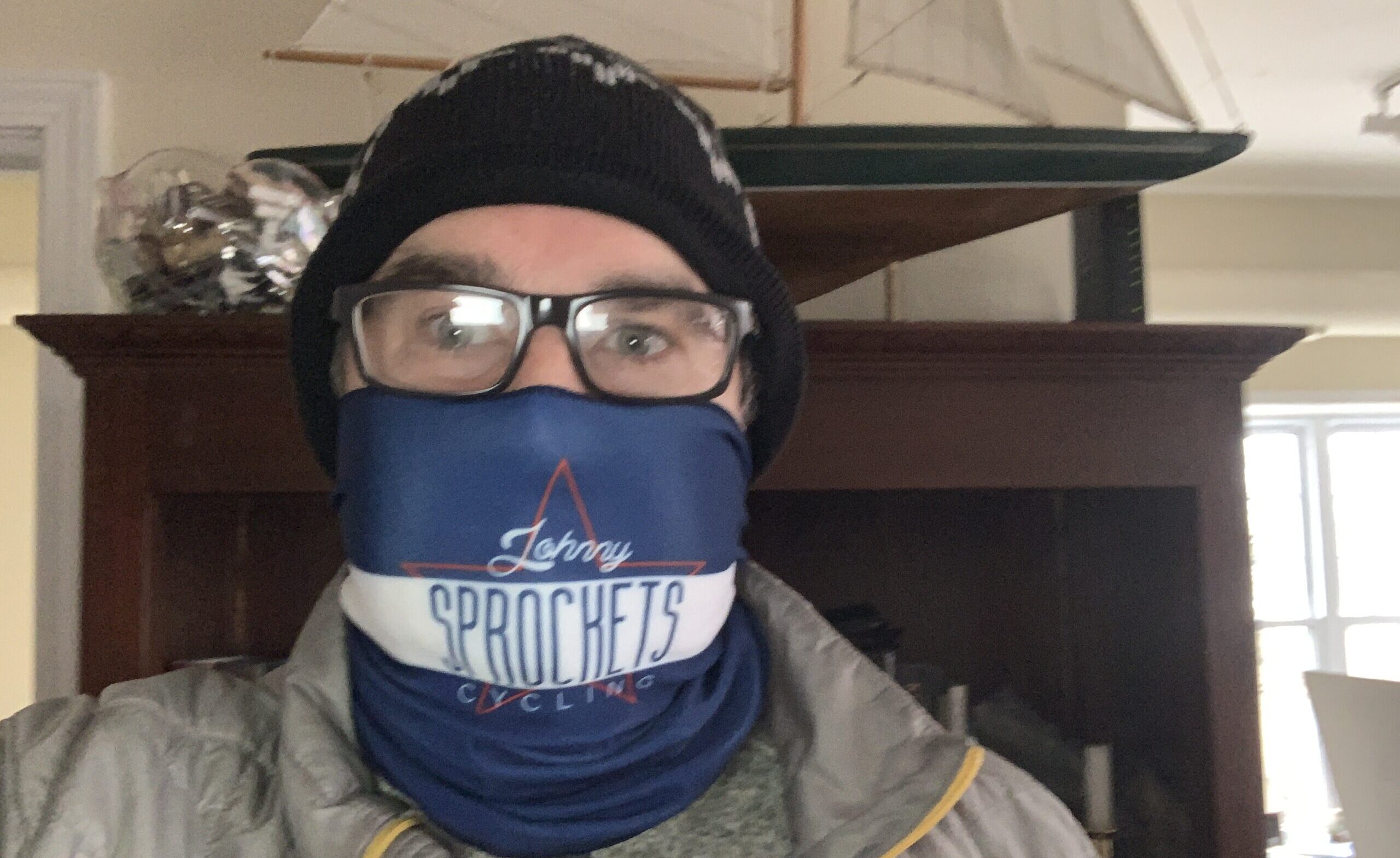
No Conclusion…
January 17th, 2021 - By Patrick T. McBriarty
So, I’ve been hoping for the energy, ambition, and a conclusion to write this. Instead thoughts, sporadic notes, and an initial draft in October marinated. The last few months repeating my experience to friends finally prompted me to follow-up to my previous two posts from 2020. The short story is I am still not fully recovered after eleven months.
The past year started nice enough with several warm days to ride outside in January, which was unusual for Chicago. At the end of 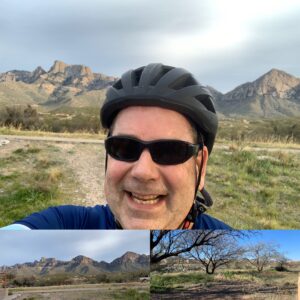 February, I traveled to Tucson for a training camp with the Johnny Sprockets Cycling Team and returned March 6th. Back in Chicago with 400-plus warm weather miles on my legs I took two weeks off before doing another cold weather ride. This was my best start to a cycling season ever, spurred on by the Sprockets, I envisioned easily riding more than 3,000 miles for the year.
February, I traveled to Tucson for a training camp with the Johnny Sprockets Cycling Team and returned March 6th. Back in Chicago with 400-plus warm weather miles on my legs I took two weeks off before doing another cold weather ride. This was my best start to a cycling season ever, spurred on by the Sprockets, I envisioned easily riding more than 3,000 miles for the year.
However, on Monday, March 23rd I woke not quite feeling right. By mid-morning an overwhelming fatigue forced to the couch to awake 3-hours later. Still feeling dragged out I accomplished nothing the rest of the day. I slept through the night, but woke exhausted with a tightness in my upper-chest and malaise – a word I never really understood until I was enveloped by it. Thus, started my first convalescence of the year.
I was suddenly overly sensitive to dehydration, fatigued, and reduced to a basic existence – eat, rest, watch videos, nap, eat, and sleep. Like shampoo, rinse and repeat day after day for two weeks. Breathing could be an effort, and twice in the middle of the night in rising panic I considered but waited until morning and never had to go to the emergency room. The next two weeks I started to feel better managing 2-4 hours of work most days, but was confined to bed on the weekends. I later learned my mistake was attending a surprise party around St. Patrick’s Day where several others also came down with Covid
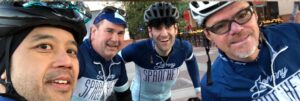 After a month I was feeling fine and counted my blessings that I had fared so well and was free of the constant fear of exposure to Covid. Having missed a month of training I tried to catch-up with my Sprockets teammates and got back to training. Over the next four-weeks I ramped up my weekly mileage and at the end of a month’s time had put in 520 miles. Although sprinting or a sustained hard effort I noticed a tightness in my chest lingered and I lacked full lung capacity. In these moments I eased back my pace and figured this would soon disappear.
After a month I was feeling fine and counted my blessings that I had fared so well and was free of the constant fear of exposure to Covid. Having missed a month of training I tried to catch-up with my Sprockets teammates and got back to training. Over the next four-weeks I ramped up my weekly mileage and at the end of a month’s time had put in 520 miles. Although sprinting or a sustained hard effort I noticed a tightness in my chest lingered and I lacked full lung capacity. In these moments I eased back my pace and figured this would soon disappear.
Wanting a change of scenery from the up and back ride on Sheridan Road from home to Highland Park and back I drove to my brother’s house in Wisconsin. The following day I got in a nice 50-mile ride and the next day 29 miles with my brother at an easy pace (for me at least). During the ride I felt the previous day’s effort more than unusual, but I chalked it off to early season building of strength. The next morning May 16th I got up and then crashed on the couch exhausted, hardly able to move napping on and off all day. Apparently, I had over done it, but there had been little or no warning.
The fatigue and tightness in my chest returned and lingered for days, weeks, then months. My health yo-yoed as uncharacteristically I struggling with low-energy, no motivation, or ambition and a fluctuating tightness in my chest which at its worst combined with a constricted feeling at the far back of my throat. 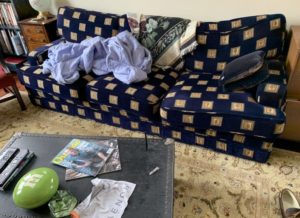 In those moments breathing was an effort. Week to week experiencing only minor improvement my Covid symptoms were back, though not quite as severe as the first time. Mine was a clinically “mild” case of Covid never having lost my taste or sense of smell, no hospitalization, no cough or swelling, and no serious aches and pains. Physical exercise was out and daily naps and good night’s sleep would leave me feeling only somewhat better. Even a phone call and talking to express myself could bring on the tightness in my chest and force me to lie down and rest. I had never experienced anything like this before nor slept and rested so much and not had the ability to bounce back in a few days or at worst a week. My ability to recover had been crushed so that the simple daily effort of meeting basic human needs could leave me exhausted.
In those moments breathing was an effort. Week to week experiencing only minor improvement my Covid symptoms were back, though not quite as severe as the first time. Mine was a clinically “mild” case of Covid never having lost my taste or sense of smell, no hospitalization, no cough or swelling, and no serious aches and pains. Physical exercise was out and daily naps and good night’s sleep would leave me feeling only somewhat better. Even a phone call and talking to express myself could bring on the tightness in my chest and force me to lie down and rest. I had never experienced anything like this before nor slept and rested so much and not had the ability to bounce back in a few days or at worst a week. My ability to recover had been crushed so that the simple daily effort of meeting basic human needs could leave me exhausted.
A few days a week I made an effort to get in a 40-60 minute walk, but when combined with a few hours of concentration or work on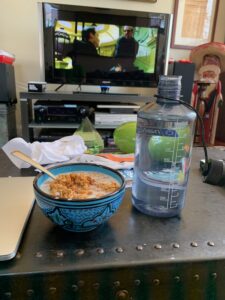 the computer it could take me backwards. Pushing on and working through was met by an array of infinitesimal challenges to spell words, rising frustration, and inability to concentrate. Other times full-blown brain fog would descend and force me horizontal to rest or nap.
the computer it could take me backwards. Pushing on and working through was met by an array of infinitesimal challenges to spell words, rising frustration, and inability to concentrate. Other times full-blown brain fog would descend and force me horizontal to rest or nap.
It was not all doom and gloom as a benefit of malaise was hours and days of binging videos and napping. When I had the energy to think about this dramatic contrast with my usual active healthy lifestyle anger and frustration would rise until what little energy I had waned and I succumbed. The reality was there was little to do but rest, much as possible eat healthy and hope to recover. I also managed over the course of the year several podcast interviews, helping distribute Christmas trees to families, bike rides around town on my fat-tire cruiser, a couple sails — including one on a historic Mackinac Boat, seeing my nephew play football in Ohio, some woodworking, paddling, and playing with powerboats — the last two with kids during CMAC programs (more on that later).
Friends and acquaintances tried to be helpful suggesting, “Maybe its mono.” “Could it be Lyme disease?” “A friend had a strange desert disease, could it be that?” (given I’d been in Tucson), or “It’s probably just depression? You know, we are all struggling in this lockdown.” By the end of May still not much better I went into my doctor, who tried to be sympathetic and ran a series of blood tests. Yet, even before those came back, he said it was probably just a post-viral recovery and imperceptibly shrugged. But I read his attitude and got the message. A few days later, in spite of 40 years of knowing my own body as a recreational athlete, my Covid antibody test came back negative. As directed a month later I returned still struggling and this time meet with his son who is also part of this practice of a half-dozen doctors. The visit played out like a younger déjà vu version of my last and his tone and body language made their impotence clear. The unsaid message was that I am not dying, we can’t do anything for you, please, “Suck it up buttercup!”
Not one to complain and rarely visiting the doctor, I probably take my usual good health too much for granted. The last several years I had been amazed by nurses who before a doctor’s exam would ask me, “What medications are you taking ?” and I would respond, “Nothing, just a multi-vitamin,” which would garner an incredulous look until I quickly reaffirmed this fact and the nurses would realize I really wasn’t lying. I would keep my smug comment, “Gosh, if we all just ate healthy and exercised wouldn’t most everyone not have to regularly take pills?” to myself.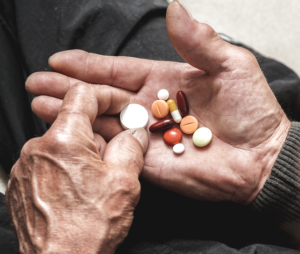
But, seriously is every other 56-year-old white male taking some kind of pharmaceutical? What kind of junkie society has America become? Am I the rare exception taking care of myself? Decades ago I had made a conscious decision to stay healthy and make it part of my lifestyle. It never really seemed hard because the reward for some self-discipline and regular exercise was feeling good physically and about myself.
Feeling only mildly better after 3 or 4 months of taking it easy was frustrating and my current inability to fully recover said to me something was seriously wrong. The tightness in my upper chest vacillated paralleling my low to very-low energy levels day-to-day and a long walk (3-5 miles) or easy bike ride (10-12 miles?) could wreck me for multiple days. Normally I can ride hard for 25-30-miles or swim 1,500 yards or walk five or six miles without any concerns and be recovered the next day. But now, week to week only slight improvements offered a positive trend overall, but just barely. As a test, feeling pretty good one Sunday afternoon in mid-June an easy 20-mile bike ride was a rude mistake. The following 3-4 days I felt like crap and it was at least a week before I had anything close to my previous energy level.
Throughout these days I usually got a full night’s sleep and woke up groggy to lay in bed listening to the news or checking emails hoping for the motivation to start my day. I could usually do a few hours work, but usually by 2 pm lost concentration and had to rest or nap in hopes accomplishing something later. Instead I would wake to a fog that took a half hour to clear, no motivation emerged so eventually I would get dinner, return to the couch watch videos and go to bed. If I was lucky I might get in a walk as the fresh air usually helped, but not always. All my instinctual markers for how to balance work, exercise, sleep and recovery were out the window.
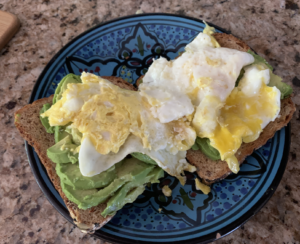 Though not really hungry, not eating regular meals would make me feel worse, and food was the one real reward throughout the day. Barely exercising, losing muscle and gaining fat tormented me atop the limited human contact of the pandemic. As an introvert I can readily entertain myself and enjoy my own company for long periods, but this was too much time in my head. Doubly frustrating was the lack of ambition, energy, and concentration preventing me from losing myself in research or writing and utilize all this time. This was especially galling since I had several such projects sitting on the back burner. I did enjoy life at this slower pace with few pressures and very little happening. So not missing much it was easy to yielded to the malaise, snuggle into the couch and watch videos. Had this became my new art, cutting myself some slack to let go of high-standards and ignore all this undisciplined revelry in my worst proclivities?
Though not really hungry, not eating regular meals would make me feel worse, and food was the one real reward throughout the day. Barely exercising, losing muscle and gaining fat tormented me atop the limited human contact of the pandemic. As an introvert I can readily entertain myself and enjoy my own company for long periods, but this was too much time in my head. Doubly frustrating was the lack of ambition, energy, and concentration preventing me from losing myself in research or writing and utilize all this time. This was especially galling since I had several such projects sitting on the back burner. I did enjoy life at this slower pace with few pressures and very little happening. So not missing much it was easy to yielded to the malaise, snuggle into the couch and watch videos. Had this became my new art, cutting myself some slack to let go of high-standards and ignore all this undisciplined revelry in my worst proclivities?
Though unafraid of Covid, I stayed mostly isolated with little else to do and the occasional Zoom call. Besides with chronic low-energy I did not feel very social. Though two Covid tests had come up negative the timing and ability to get them was off. My nasal swab was done in the third week after I first felt poorly, likely too late to detect the virus was well past the 5-10 days after showing symptoms. Similarly, the Covid anti-bodies (IgG and IgM) drop off significantly 2-4 weeks after the acute illness ends which would have been in April and these simple yes-no anti-body tests were unavailable. Thus, I had no medical proof of having Covid, yet the symptoms matched up and my affliction was definitely respiratory in nature. Still given the uncertainty and new social norms I honored the proper behavior wearing a mask, gave people 6-feet, and mostly stayed to myself. I did not wish this on anyone. Besides grocery shopping one reprieve was going to the woodshop on Saturdays to work with two CMAC instructors. It was a break to get out of the house and work with my hands and I saved my energy for these days looking forward to the camaraderie doing projects to build out the space in April and May and again September through December.
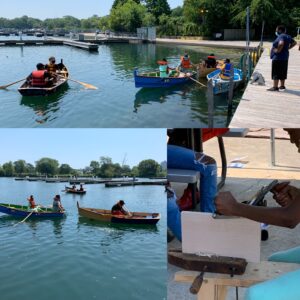 I was also still (mostly) keeping up efforts with a nonprofit, the Chicago Maritime Arts Center (CMAC), to coordinate programming. We were proud to run four programs between July and August and I coordinated instructors, equipment, materials, and venues, made sure lunches were provided, and occasionally did some instruction. These day-camp programs were held weekdays from 10 am – 3 pm throughout July. These days stretched me. We all wore masks, were mostly outside, and the programs went well and without incident. That month getting out, interacting with kids and instructors, the sunshine, fresh air, and time on the water was good for me. Yet, by August I was run-down and had to lean on our instructors to handle many details and daily lunches as I switched back to recovery mode and made appearances only when necessary. I also attended weekly Zoom meetings and organizational demands of CMAC, and built the webpages to release a new podcast episode each month for the Windy City Historians. Thankfully my co-host Chris Lynch was doing the lion’s share of audio editing during this time.
I was also still (mostly) keeping up efforts with a nonprofit, the Chicago Maritime Arts Center (CMAC), to coordinate programming. We were proud to run four programs between July and August and I coordinated instructors, equipment, materials, and venues, made sure lunches were provided, and occasionally did some instruction. These day-camp programs were held weekdays from 10 am – 3 pm throughout July. These days stretched me. We all wore masks, were mostly outside, and the programs went well and without incident. That month getting out, interacting with kids and instructors, the sunshine, fresh air, and time on the water was good for me. Yet, by August I was run-down and had to lean on our instructors to handle many details and daily lunches as I switched back to recovery mode and made appearances only when necessary. I also attended weekly Zoom meetings and organizational demands of CMAC, and built the webpages to release a new podcast episode each month for the Windy City Historians. Thankfully my co-host Chris Lynch was doing the lion’s share of audio editing during this time.
Occasionally the tension of living alone and wanting a girlfriend surfaced, yet the effort involved or confusion of dating during a pandemic put the kibosh on most efforts. On a couple occasions when I did connect with someone my fluctuating health sabotaged it as my energy waned my preference was to be left alone. Of course, my disdain for weakness, particularly my own, did not help my sociability either.
Similarly hoping for a conclusion to write this post on Covid the months dragged on feeling 70 to 80 percent. Toward the end of July, I visited an infectious disease specialist and she ran more blood work and chest x-rays. This confirmed my ailment was not caused by some exotic disease or infection, my heart and lungs showed normal with no scarring leaving Covid as the only possible explanation. Yet because a second Covid antibody test came up negative she too was unwilling to say I had Covid.
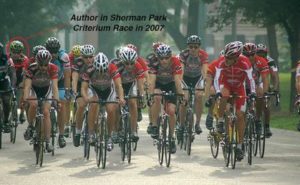 So, when I got mad enough I researched the shit out of Covid, hoping to find a potential solution. The most promising of these was EPO. If you do not follow professional cycling EPO is a doping substance employed to boost performance and recovery. Two- and three-week stage races in professional cycling are the most physically demanding of any sport – think Tour de France. These athletes know every little bit adds up before, during, and after the race. They have a traditional saying among bike racers to encourage saving energy — when not riding don’t stand when you can sit, and don’t sit when you can lie down.
So, when I got mad enough I researched the shit out of Covid, hoping to find a potential solution. The most promising of these was EPO. If you do not follow professional cycling EPO is a doping substance employed to boost performance and recovery. Two- and three-week stage races in professional cycling are the most physically demanding of any sport – think Tour de France. These athletes know every little bit adds up before, during, and after the race. They have a traditional saying among bike racers to encourage saving energy — when not riding don’t stand when you can sit, and don’t sit when you can lie down.
EPO is very difficult to detect and a proven performance enhancing drug. EPO is short for Erythropoietin, which is a hormone produced in the kidneys to regulate the production of red blood cells. There are many medical studies on EPO and it is used medically as a prophylactic for altitude sickness and anemia. Most studies relating to EPO and human performance were conducted in Europe, likely a corollary to the prevalence of professional cycling there. These studies show even low-dose EPO improves performance and additional studies during the pandemic documented dramatic recoveries with the use of EPO on critical Covid-19 patients and showed EPO helps to combat the adverse effects of Covid on the respiratory system, neurological system, and immune response. In one case, an 80-year-old critically ill Covid patient in Iran was given EPO and walked out of the hospital 8-days later.
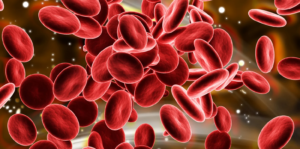 Humans have a natural level of EPO and by increasing EPO artificially red blood cell counts rise carrying more oxygen to the body to improve recovery and performance. Several studies show the percentage of performance improvement can be as much as 2-6%, which in a bicycle race of say 120 miles of even a 1% advantage can make a big difference between winning and losing, because after all who remembers second or third place finishers.
Humans have a natural level of EPO and by increasing EPO artificially red blood cell counts rise carrying more oxygen to the body to improve recovery and performance. Several studies show the percentage of performance improvement can be as much as 2-6%, which in a bicycle race of say 120 miles of even a 1% advantage can make a big difference between winning and losing, because after all who remembers second or third place finishers.
In the early 1990s EPO doping had become so rampant cyclists were wearing heart-rate monitors at night with alarms to wake them if their heart rate dropped too low. A spate of fit young cyclists died in their sleep on the 1990s and early-2000s due to heart attacks, strokes or other cardiac problems. Very 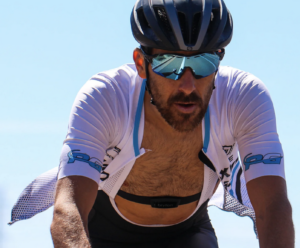 difficult to prove especially as extreme endurance sports may simply push a body too far, doping was often blamed and some say unfairly. The jury is still out, but extreme fitness gives athletes very low resting heart rates and the theory is the addition of EPO made the blood sludgy and contributed to many of these deaths. As I said there is not enough data to prove it either way and it is a common theory in the cycling world.
difficult to prove especially as extreme endurance sports may simply push a body too far, doping was often blamed and some say unfairly. The jury is still out, but extreme fitness gives athletes very low resting heart rates and the theory is the addition of EPO made the blood sludgy and contributed to many of these deaths. As I said there is not enough data to prove it either way and it is a common theory in the cycling world.
Now, I am not advocating anything too extreme, yet the major problem with Covid is its interference with the body’s ability to get oxygen, which is key to performance, healing, and recovery. Covid is known to cause a deterioration of the organs and can adversely affect the cardiac system, immune response, and nervous system. A major symptom is brain fog, which I experienced, characterized by difficulty thinking and concentrating, inability to focus, remember simple words, or perform basic math. It was as if your brain were wrapped in an angora sweater or hungover without having touched a drop feeling like you were trying to think through a haze, occasionally compounded by a headache.
So, logically it seemed using EPO to increase oxygen to the body would offer some help. My argument was if EPO worked on critical cases it should help in mild cases of Covid too. Thusly, low-dose EPO might be an appropriate Covid therapy, similar to taking a steroid-pack to boost recovery after surgery or an injury.
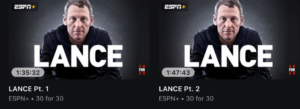 During the first visit to my primary care physician in May, I mentioned EPO and he had no idea what I was talking about, until I added that it was what got Lance Armstrong in trouble. This unfortunate moniker for EPO did not encourage him to look into it for me. In the ESPN 30-for-30 documentary LANCE, Mr. Armstrong argues, “EPO is a safe drug,” then pauses and adds, “with doctor supervision.” However, I doubt any medical professionals in the U.S. get serious about studying EPO via endorsement by a cheater. Searching on Google by various terms for a practicing doctor or medical study about EPO in Chicago or even the United States proved fruitless. Taking a long-shot, I even tried via a website associated with Dr. Michele Ferrari asking for help, but got no response. Ferrari was the former cyclist and Italian doctor who worked with Lance Armstrong throughout his racing career.
During the first visit to my primary care physician in May, I mentioned EPO and he had no idea what I was talking about, until I added that it was what got Lance Armstrong in trouble. This unfortunate moniker for EPO did not encourage him to look into it for me. In the ESPN 30-for-30 documentary LANCE, Mr. Armstrong argues, “EPO is a safe drug,” then pauses and adds, “with doctor supervision.” However, I doubt any medical professionals in the U.S. get serious about studying EPO via endorsement by a cheater. Searching on Google by various terms for a practicing doctor or medical study about EPO in Chicago or even the United States proved fruitless. Taking a long-shot, I even tried via a website associated with Dr. Michele Ferrari asking for help, but got no response. Ferrari was the former cyclist and Italian doctor who worked with Lance Armstrong throughout his racing career.
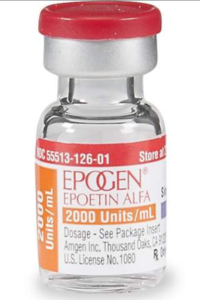 So you may not be surprised all four doctors I visited were unwilling to get involved with anything out of the norm nor consider EPO as a treatment option. Only the infectious disease physician when pressed gave me a referral to a hematologist. But upon calling for an appointment, I was told by the nurse they could not help me. Theirs was part of an oncology practice and wanted nothing to do with Covid patients getting anywhere near their cancer patients.
So you may not be surprised all four doctors I visited were unwilling to get involved with anything out of the norm nor consider EPO as a treatment option. Only the infectious disease physician when pressed gave me a referral to a hematologist. But upon calling for an appointment, I was told by the nurse they could not help me. Theirs was part of an oncology practice and wanted nothing to do with Covid patients getting anywhere near their cancer patients.
Yet, EPO is readily available for sale on the internet. And beyond keeping it chilled it is easily shipped and apparently now used on race horses, although horse racing authorities are trying to curtail such use. The main problem for me as a normally healthy person, unlike some win-at-all-cost cyclists and nefarious horse trainers, I was hesitant to put a foreign substance into my body. It seemed risky without doctor supervision, the proper dosage was unclear (how do you measure in IUs – short for International Units), and blood tests were necessary to ensure its effectiveness and regulation of the dosage. I had no intention of potentially injuring or killing myself with EPO — even in the worst malaise.
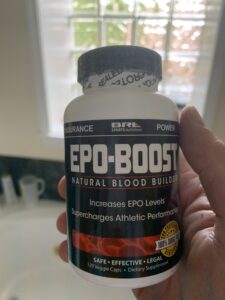 The supplement EPOBoost regularly popped-up in these Google searches. Initially I ignored it wanting no substitute, but later looked into it and found it is a legal supplement purported as effective at increasing the body’s natural level of EPO. The manufacturer’s website references hundreds of studies showing it works. The ingredients include vitamins D and B12 plus other natural supplements not otherwise detailed. Sick of being sick and tired, let alone listless and unproductive, I finally ordered a 30-day supply for $65. After all what did I have to lose?
The supplement EPOBoost regularly popped-up in these Google searches. Initially I ignored it wanting no substitute, but later looked into it and found it is a legal supplement purported as effective at increasing the body’s natural level of EPO. The manufacturer’s website references hundreds of studies showing it works. The ingredients include vitamins D and B12 plus other natural supplements not otherwise detailed. Sick of being sick and tired, let alone listless and unproductive, I finally ordered a 30-day supply for $65. After all what did I have to lose?
Thankfully I had blood work from a full-physical in June 2019, and a similar blood work-up in June 2020. When comparing the hematocrit and the red blood cell counts year-to-year they were identical while, my white blood cell count was down about 14% from 2019. This gave me a baseline to try EPOBoost. At the time, I had also decided to change primary care physicians and booked the next possible appointment two months out. This gave me the time and opportunity for additional blood tests to experiment. As an aside, though statically insignificant as a single observation, the stability of these blood results support the idea of using biological passports as a control for doping by professional athletes. It would seem we all have a natural blood level that does not change very much.
By the time of the doctor’s visit I had been taking EPOBoost for six weeks and was feeling significantly better, though still not fully recovered, all of which I explained to my new physician. She ordered a full battery of blood tests, checked my heart, scheduled a stress test, and echocardiogram to rule out cardiac issues sometimes caused by Covid. She was much more sympathetic, which in itself was helpful, and tended to agree I might have had Covid. A few days later, the test results showed an increase in my hematocrit and red blood cell counts of 3.4%, a definite improvement and still well within normal ranges. Also, my white blood cell count had increased, but was still below the 2019 level. This confirmed my sense EPOBoost had helped me feel better. The stress test showed my heart, valves, and circulation was very good and no issues, but my doctor suggested discontinuing EPOBoost warning it could cause blood clots. That really concerned me given my wife had died as a result of blood clots 21-years ago. A completely different story I do not mind getting into, but for now will stick to my experiences with long-Covid.
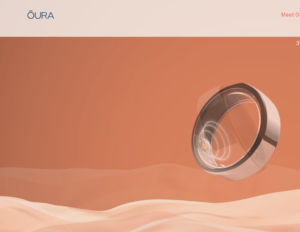 So, I stopped taking EPOBoost, besides I was feeling pretty good. In addition, I purchased an Oura Ring to track sleep, recovery, and activity. I soon found it very helpful toward measuring recovery and improving my behavior to get a good night’s sleep. It also encouraged me to get in 10,000 steps a day and not eat too close to bedtime. However, after 3 to 4 days off EPOBoost and getting in 10,000 steps I wasn’t feeling so well. Two weeks later still feeling crappy and my days again required an afternoon nap. The worst day during this period after sleeping through the night, I took a 1-hour and 48-minute nap and still slept 7-1/2 hours that night. The next morning the Oura app on my phone cautioned me to take it easy as my overnight recovery was not good given my heart rate did not lower until late in the night. Minimally explained by a late dinner, I still felt crappy for a couple more days and became even more vigilant at keeping a healthy schedule.
So, I stopped taking EPOBoost, besides I was feeling pretty good. In addition, I purchased an Oura Ring to track sleep, recovery, and activity. I soon found it very helpful toward measuring recovery and improving my behavior to get a good night’s sleep. It also encouraged me to get in 10,000 steps a day and not eat too close to bedtime. However, after 3 to 4 days off EPOBoost and getting in 10,000 steps I wasn’t feeling so well. Two weeks later still feeling crappy and my days again required an afternoon nap. The worst day during this period after sleeping through the night, I took a 1-hour and 48-minute nap and still slept 7-1/2 hours that night. The next morning the Oura app on my phone cautioned me to take it easy as my overnight recovery was not good given my heart rate did not lower until late in the night. Minimally explained by a late dinner, I still felt crappy for a couple more days and became even more vigilant at keeping a healthy schedule.
 Feeling crappy meant I was grumpy, short tempered, and easily frustrated by small things, lacked patience, and had no extra energy or ambition. Not my normal self. In addition, the tightness in my upper chest that had disappeared while using EPOBoost had returned and I did not manage to get 10,000 steps for almost a week. Apparently, my health was even more tenuous than imagined and a return to good health felt far from reach.
Feeling crappy meant I was grumpy, short tempered, and easily frustrated by small things, lacked patience, and had no extra energy or ambition. Not my normal self. In addition, the tightness in my upper chest that had disappeared while using EPOBoost had returned and I did not manage to get 10,000 steps for almost a week. Apparently, my health was even more tenuous than imagined and a return to good health felt far from reach.
Returning to EPOBoost at a half-dose marked six-months since first feeling sick. There was no doubt this Covid shit was real, and “long-hauling” was by then recognized by traditional medicine as “long-Covid.” EPOBoost again seemed to help and after several weeks I weened myself off it a second time to again feel crummy, but not as bad as the last time. Since October I have yo-yoed usually completing a full day of work and grateful for a flexible schedule to accommodate days best spent recovering. Frequently, I pushed these meager limits and nearly as frequently was forced to dial back or spend a couple days mostly in bed to prevent retrograding further.
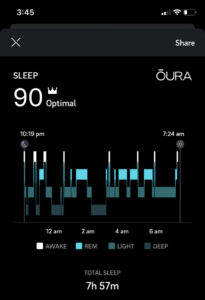 For the month of December, I vowed to coddle myself in the hopes of completely knocking the damn thing out. I got religion on eating dinner before 7:30 pm, got to bed by 10:30pm, and stacked up good nights of sleep. Each morning checking my sleep score I moved my average weekly score from 79 to 85 by Christmas week. Whenever tired I stopped working and laid down to rest or take a nap and dialed back activities trying to bank energy and recovery. However, by late December it was clear a month would be insufficient. Also, Christmas Eve feeling good and helping myself to several glasses of red wine was a disaster as I was messed up the next 3-4 days and low energy days beyond. When first ill I had no taste for alcohol and a few months later it was clear alcohol was the devil. For the past nine months I had almost entirely stopped drinking and might have had a one drink a half-dozen times. I was so sensitive even a sociable beer could hurt me to feel dull and cranky the next day.
For the month of December, I vowed to coddle myself in the hopes of completely knocking the damn thing out. I got religion on eating dinner before 7:30 pm, got to bed by 10:30pm, and stacked up good nights of sleep. Each morning checking my sleep score I moved my average weekly score from 79 to 85 by Christmas week. Whenever tired I stopped working and laid down to rest or take a nap and dialed back activities trying to bank energy and recovery. However, by late December it was clear a month would be insufficient. Also, Christmas Eve feeling good and helping myself to several glasses of red wine was a disaster as I was messed up the next 3-4 days and low energy days beyond. When first ill I had no taste for alcohol and a few months later it was clear alcohol was the devil. For the past nine months I had almost entirely stopped drinking and might have had a one drink a half-dozen times. I was so sensitive even a sociable beer could hurt me to feel dull and cranky the next day.
As I write this in early January 2021, I still have not regained the full ability to recover, which is a fraction of what it was last February. I also do not have anything close to the energy and spunk I did eleven months ago. As I lie here on the couch I wonder if this damn virus is somehow still embedded in my lungs and elsewhere, fighting my immune system, and frustrating my full recovery as even March seems like an overly optimistic timeline to feeling good. I want to starting working out again, be able to recover, and get back in shape again. But I have yet to find a solution or treatment for the fluctuating tightness in my upper chest or occasional constriction in the back of my throat and low energy. I know I am not spreading Covid given time spent with the guys at the shop, a few friends, and some family during the past 10 months, but is the virus still in me thwarting my full recovery?
In the past couple months, I found I am very sensitive to the cold and am occasionally having mild unexplained headaches never experienced prior to 2020. In a further attempt to speed my recovery over the course of four days I drove to Florida. I am hoping warm weather and sunshine might help. However, even that has been thwarted as the first several days with highs in the 50s or 60s forced me to wear warm clothing and retreat under a blanket to stay warm. This definitely beats Chicago’s snow and freezing temperatures, but came here hoping to bake in the sun and rejuvenate. It is strange to feel poorly with sunshine and palm fronds beckoning outside.
I have hesitated getting back on EPOBoost for fear extended use could be detrimental. It has given me heart palpitations a couple times, which a friend with a similar experience confirmed. So, here I sit with no obvious answers nor a satisfying conclusion, but at least from a sunny climate and determined disposition… here’s hoping 2021 is a Happier New Year for everyone.

January 17th, 2021 at 6:42 pm
Wow, holy shit, ummagumma,… When I asked you on the boat, was that a relatively better or worse time for your energy and health? I have heard some similar stories but all were in the sound-bite format of NPR, etc. Thank you for taking the time and energy to share this. I need to process, will write more by email… Ken
January 17th, 2021 at 8:44 pm
Hey Patrick,
So sorry to hear that this crap is still hanging on to you. Hopefully the sun will help to bake it out of you. Thanks for sharing. I will be sending some good Qi vibes to you.
Take care,
Lori
January 18th, 2021 at 12:16 am
OMG, had no idea this shit was still hanging on. It’s great your heart and lungs test ok. I have no knowledge but plenty of love and caring to share. I so pray your physician discovers something that will give you you back. If I can help in any way just ask.
January 21st, 2021 at 9:18 am
If it quacks like a duck, it’s probably a duck. I’ve had long COVID since mid-April, but fortunately no pulmonary symptoms. Post-exertional malais
February 3rd, 2021 at 2:14 pm
I have the exact. Shortness of breath at various times of day ,chest tightness heart pounding, voice changes ,cloud brain fog it starts anytime it wants. I’m a athletic surfer water rescue team. What sucks is no one believes me.
February 8th, 2021 at 8:35 pm
WOW.
Thank you for so much….
thank you for being a great writer and getting your story across very clearly
thank you for your honesty on so many levels (physical, mental, …)
thank you for investigating and researching
thank you for not giving up
thank you for the courage to try things including changing doctors when you needed to
thank you for being so strong – I love the part about you only ever took a multivitamin =) made me smile
thank you for taking care of yourself
thank you for (and I’m not sure if you said this or not) saying that sometimes it sucks being alone and sick because you just want to be taken care of with a warm blanket, cup of hot tea
thank you for sharing what you did about alcohol consumption – I had not heard that before – but I would rather be dead than hung over
thank you for commenting in a gentle non-judging way to your friends that this is still very very very real
thank you.
And as Gail wrote, I pray for your physician(s) and for you!
julie